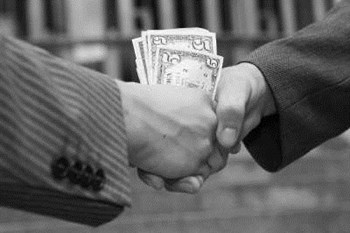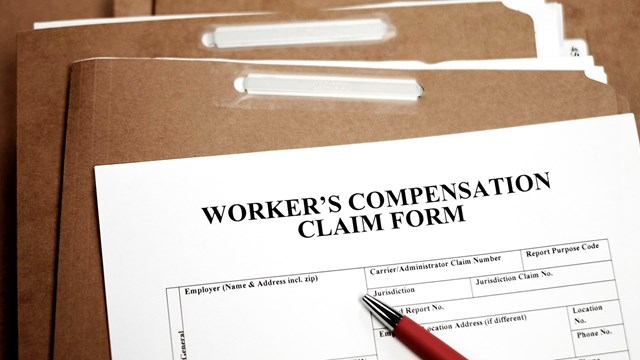
Most individuals have a healthy sense of ethics, choosing to run their personal lives and business affairs aboveboard. Unfortunately, a few bad apples are inevitable.
Co-op and condo board members and managers are in positions of authority and regularly handle hefty amounts of money, often without much supervision or oversight. When the "bad apple" happens to be a board member or manager and perpetrates fraudulent use of monies or chooses to abuse relationships and/or resources, the effects on a co-op or condo can be devastating.
Types of Fraud in the News
Aaron Shmulewitz, a partner at the Manhattan-based law firm of Belkin Burden Wenig & Goldman, has specialized in representing the interests of co-op and condo boards for over twenty-five years and says that he's seen his share of sneaks. "Unfortunately, the structure of co-ops and condominiums—ownership by one group of people, management by a second and day-to-day operations by a third - makes co-ops and condos ripe for being taken advantage of by unscrupulous managers and employees," Shmulewitz says.
History tells us that those who engage in fraudulent activities are awfully good at hiding what they do—all too often, their crimes go unnoticed for years. That said, there are some places that fraud is likely to grow like a weed. "The most common form of fraud in co-ops and condos is building staff taking advantage of their positions by doing things like over-ordering building supplies and keeping or selling the excess, [or] working at another building during regular hours so as to be paid twice," Shmulewitz says.
Many who engaged in these types of fraudulent activities in the mid-1990s suddenly found themselves the center of attention in 1994. In June of that year, the Manhattan district attorney announced that a whopping 86 managing agents, companies and even a co-op board president had been indicted on charges of taking millions of dollars in payoffs from contractors and suppliers. Those who investigated found fake receipts, fake contracts and "lost" records—they didn't come up with much of the money that was lost, however.
Eric Goidel, a partner at the Manhattan-based law firm of Borah Goldstein Altschuler Nahins & Goidel, who has also specialized in co-op and condominium representation for nearly twenty-five years, remembers that when the smoke cleared, "About a dozen or so individual agents and companies were nabbed. A few principals of higher profile companies actually went to jail. Others essentially got their hands slapped, and many of those were even able to continue in the industry."
Goidel says that the crackdown scared a lot of people straight and led to industry-wide reform among managing companies and their agents and employees. He warns, however, that reforms some 10 years ago don't make it impossible for something similar to happen again. "The publicity eventually died down, and it is likely that with a slight hiatus to 'look over their shoulder' some of those individuals disposed to such conduct a decade ago may still continue such conduct today."
Stopping Fraud Before it Starts
The very nature of fraud means that it is cloaked in secrecy and largely hidden from sight —if it were easy to spot, it wouldn't be such a big problem.
Of course, the best way to spot fraud is to see to it that it never starts. "It is far easier to create financial systems and controls which can reduce the opportunity in the first place," says Goidel. "While there is no one common form of fraud in cooperatives or condominiums, the area where there is often the greatest risk is that of major construction contracts, where the contract sum can be enormous, and thus the ability to build in and hide fraud can be the greatest."
Sam Irlander, president of Manhattan-based management firm Parker Madison Partners Inc. and associate professor at New York University, agrees, and stresses the importance of an active, fully-engaged board, particularly when it comes to the bidding process.
"Everything should be on a sealed-bid basis and should always go directly to the board," says Irlander. "That way, no one should know what the bids are until they open them up." Irlander goes on to say that one way to decrease the chances of fraud is to remember that choosing a contractor should always be a board decision, and not left purely up to the managing agent or management company.
Goidel outlines a few possible controls for boards interested in safeguarding against this common form of fraud:
• Obtain multiple bids and unit pricing for all major contracts and services, as that will establish possible aberrations from contractor to contractor.
• Opening bids before either the entire board or a committee will reduce the opportunity for one individual to have had an independent contact with a contractor or vendor.
• Periodically check pricing, even for non-major contracts and services, as comfort in believing that one is the "preferred" contractor often breeds the opportunity for fraud.
• Require multiple signatories on expenditures over a certain dollar limit, and always require multiple signatures when tapping into either a reserve account or bank credit line.
• Make certain that your management company internally separates the employee responsibility for receivables and payables.
• Obtain monthly financial reports and bank statements, and compare them with the prior months' reports/statements.
Irlander says that a board can require two signatures on all checks, or can "choose to set a maximum check amount that the agent can sign on [his or her] own, then require two signatures on all checks exceeding that amount." Although signing each check may seem inconvenient in practice, it's one very effective way to ensure that the manager's expenditures on behalf of the building are accounted for.
Another level of transparency can be added by having your building's attorney look over financial documents and other money-related items periodically. If keeping a lawyer around full-time is a little daunting to you or your building's budget, relax. Not every invoice for winter rock salt or garden mulch needs to be checked by an attorney.
"It would not be practical or cost-effective for a building to get its attorney involved in negotiating or arranging garden-variety transactions like the purchase of supplies, fuel oil or the like," says Shmulewitz. "Attorneys normally get involved only in the negotiation and preparation of written agreements for extraordinary things like large repair projects." When those do come up, the eyes and ears of an attorney can help keep every part of the deal aboveboard.
Hot On the Trail
If such safeguards have been taken and questionable activity is still suspected, Shmulewitz says that's when a professional should be contacted to take the next step.
"If a board member or manager suspects his/her building is being ripped off, he/she should report it to the building's auditor and attorney. Frequently, the auditor will perform some sort of in-depth review to determine if the suspicions have any foundation.The attorney would get involved as soon as the board believes it has enough evidence to proceed."
Each situation is unique; much of the process of ferreting out the bad guys—and bringing them to justice—happens on a case-by-case basis. "The manner in which an investigation will have to be conducted is dependent upon who is suspected of fraud, as well as [the person] who is making the allegation," says Goidel."Upon the results of the investigation (and, if fraud is confirmed, its magnitude) a decision will then have to be made whether to deal with it internally, or whether to go to the authorities."
Making that call comes down to the reason the building was probably defrauded in the first place—money. If you've found proof of fraud, you've got a case. But how far will you have to go with it? Will it be worth the time and energy to pursue justice? These are the kinds of questions boards, owners and lawyers ask when deciding how to proceed.
Truth & Consequences
According to Shmulewitz, defrauding a co-op or condo is usually not a federal offense."It is usually prosecuted in state court as larceny or fraud," he says. "Theoretically, a federal charge could be brought if the fraud involved the use of interstate commerce, like telephone calls or mail.However, from a practical perspective, the amounts involved are usually much too small for a federal prosecutor to be interested in pursuing."
"The bottom line for a cooperative or condominium is to surround itself with an honest and experienced managing agent, accountant, attorney, engineer and board/committee members whose fellow shareholder or unit owners believe are beyond reproach. While internal controls are essential, at the end of the day, your co-op or condo is only as financially secure as its leaders and professionals are honest."
Mary Fons is a freelance writer and a frequent contributor to The Cooperator.






10 Comments
Leave a Comment